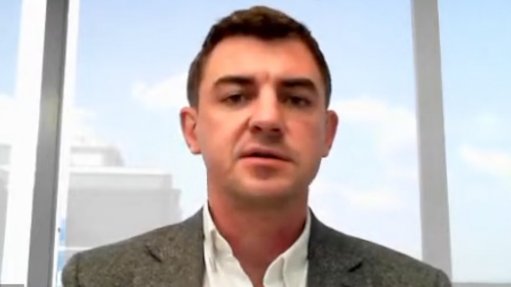
Pinsent Masons partner Edward James
Pinsent Masons partner and white collar crime expert Edward James has advised companies to stay up to date with media reports about companies implicated in State capture and to check whether suppliers are adversely mentioned in the Judicial Commission of Inquiry into State Capture report.
Addressing the Pinsent Masons webinar, 'Zondo Commission: What to do if you, your client or a supplier are implicated in a report?', hosted by Creamer Media, James said being mentioned in the Zondo report does not necessarily show wrongdoing.
“What is seen in the report is a tale of heroes and villains,” he said.
The third part of the report, released this week, focuses on Bosasa and the corruption allegations surrounding the company, and it implicates, among others, Minerals Resources and Energy Minister Gwede Mantashe, former President Jacob Zuma and former Environmental Affairs Minister Nomvula Mokonyane.
1 438 people – companies and individuals – have been adversely impacted by the evidence that the Commission has gathered.
“If you, yourself as a company or as an individual, have been mentioned in the Zondo report, the first step to take is to determine whether that is adverse or not adverse. I would imagine that most of the companies who are adversely referenced have gone through a journey; whether they have received a rule 33 notice, some of them might have made representations to the Zondo Commission, engaged with investigators,” he said.
FACT FINDING
James explained that individuals or companies that were going to be adversely impacted by the evidence given by witnesses during the State Capture Commission would have received a rule 33 notice and would have been given seven days to respond and apply for leave to cross-examine witnesses.
He advised if a company had received a rule 33 notice, the company should consult the report and see if it has been named in volumes one, two and three.
He added that companies must also screen future volumes for mention of their names.
He further advised companies to have “onboarding processing” in place, which he said would have some type of compliance vetting that usually involved adverse media checks and compliance database checks.
“Checking or vetting customers is a bit different, only regulated institutions, banks or lawyers who have so-called KYC, or know your customer, checks, in place, so non-regulated companies won’t usually look at that client to try and understand if they have been implicated or not,” he explained.
He said he did not suggest that non-regulated companies implement KYC checks, as it is not a legal requirement and it might not be practical.
“But if one is concerned as a company and you think that some of your customers or clients might be exposed, if you don’t already have it in-house, taking your client list, customer list and getting somebody to run it against a database and doing that check is the first step,” he said.